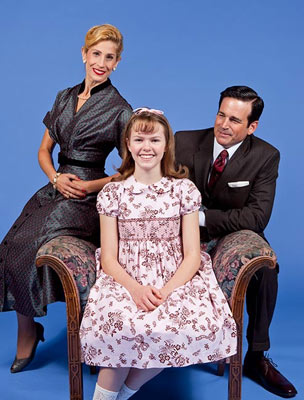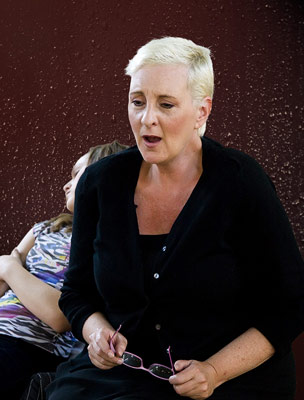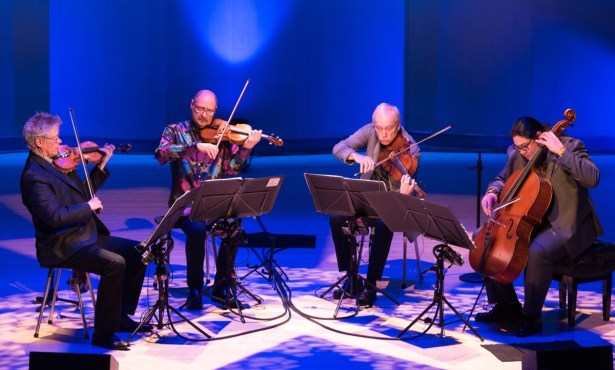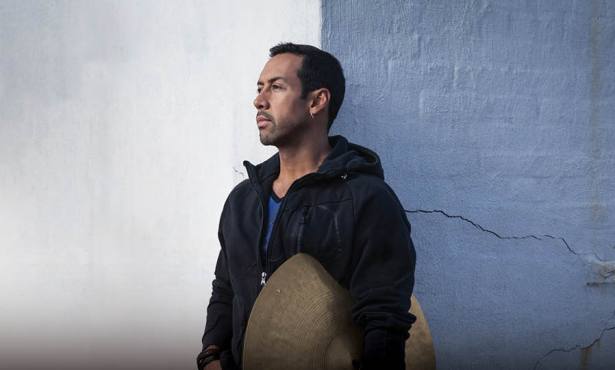Seance on a Wet Afternoon to Premiere at the Granada
A New Opera from the Man Who Wrote Wicked
Stephen Schwartz’s Seance on a Wet Afternoon, at once an unprecedented surprise and a long-anticipated goal of the Santa Barbara music community, comes to the Granada Theatre on Saturday, September 26, as the highest-profile world premiere in recent Santa Barbara history. It’s the first opera by Grammy-winning Broadway and film composer Stephen Schwartz, it has an amazing cast, and it brings together an underrated classic film property with the vision of an S.B. couple, Richard and Luci Janssen, who have become among the world’s most influential commissioners of contemporary classical music. The top two tiers of tickets are already sold out for Saturday night, but there are still affordable options for those interested in witnessing music history.

Although he tasted success early in his career with Godspell, for which he won two Grammys in 1971, Stephen Schwartz has persisted in pushing the limits of his art with ambitious projects in a number of media. Together with legendary choreographer Bob Fosse, he advanced the art form of the Broadway musical by writing Pippin, which has gone on to be one of the world’s most beloved and frequently produced shows. In the 1990s, Schwartz joined the team at Disney and wrote a string of hits for the studio’s animated films, such as Pocahontas. In 1995, Schwartz demonstrated his uncanny eye for dramatic potential by optioning Gregory Maguire’s novel Wicked, and then teaming with Winnie Holzman to transform the story of the witches of Oz into the most popular and influential musical thus far this century. Schwartz’s music for Wicked has fascinated students of musical theater and thrilled audiences all over the world. Deftly blending techniques of film scoring with the traditional elements of stage musical construction, Schwartz created a seamless musical world for his characters and indicated that his abilities as a composer were on the verge of another great leap forward.
With Seance, Schwartz takes that leap. In a completely operatic idiom (i.e., no amplification of the instruments or voices), Schwartz has managed to both preserve the excitement and suspense of the original film and extend its concept into the realm of the opera canon. With soprano Lauren Flanigan in the lead role, the cast will be extraordinary, both as singers and as actors. Scott Schwartz, Stephen’s son and a successful theater director in his own right, has come in to direct, and longtime Opera Santa Barbara Maestro Valery Ryvkin will conduct.

The story follows the adventures of an unorthodox protagonist, spiritual medium Myra Foster, as she draws her husband Bill into assisting her in kidnapping the daughter of a wealthy San Francisco family, the Claytons, in order to call attention to her psychic powers. The boundary between fantasy and reality blurs and bends as Myra struggles to convince the world that she is in contact with her dead son Arthur through a series of staged seances that also involve the missing Clayton girl. Based on a successful British film from the 1960s, the libretto is full of chilling moments and dark, moody atmosphere. The premiere on Saturday night promises to be one of the highlights of the year for Santa Barbara audiences. I spoke with Stephen Schwartz last week about his experience working on this highly anticipated production.
This project involves achieving a balance between your role as a playwright and your role as a composer. Do you feel you have found that balance? I have certainly striven to achieve it. As Stephen Sondheim has said, “Let others make that judgment-they usually do.” I have always considered my work to be story-driven, and certainly for this project I would say that the music exists to tell the story, rather than the story providing an excuse for the composition of the music.
How is orchestrating an opera different from composing a musical? It’s a lot more labor intensive. I have had to adjust to a different musical profile, and to remember some of the things I studied at Juilliard long ago.
Could you say more about the fact that opera offers a different musical profile? In a situation where you know that the singers will be miked, and the voices amplified, you can write the music in a kind of horizontal band and then just lay the vocals on top of that. When you need to hear the words, you bring up the vocals in the mix, and when the orchestra is more important, you can change the levels again. In opera, that’s not an option. You have to be very careful what kind of music you write when people are singing because the words have to be understood. That’s very important to me because I’m a storyteller. This opera is in English, so there are no subtitles, and people have to be able to follow the plot by listening to the words as they are sung. As a result, the score begins to look like a mountain range, with these great peaks of orchestral expressions and these valleys where the instrumental parts are very low so that the singers can be heard. It’s an entirely different kind of silhouette of what music is.
Opera seems to be enjoying a resurgence of popularity, particularly new operas. Do you feel that to be the case? Absolutely. It is such a great art form, and it’s exciting for me even to be a part of the audience now for contemporary American opera as it really begins to happen as a popular art form.
Have you been influenced by any of the great opera composers? Some people have pointed out the influence of Richard Strauss on certain passages, but there hasn’t been one composer in particular whom I have been trying to emulate. I never said I wanted to write like Puccini, or Benjamin Britten, but people have been hearing their influence as well.
What about your own style? Do you think Seance will sound like you to people who are familiar with your other work? That’s an interesting question, but probably not one that I am in a position to answer. Whether or not people will be able to listen and say that they hear the voice of the composer of Wicked in Seance is something I have no way of knowing. I guess I am just too much on the inside. So it’s not necessarily something that I will hear, but it will be interesting to see what others think.
4•1•1
Seance on a Wet Afternoon premieres at the Granada Theatre (1214 State St.) on Saturday, September 26, at 7:30 p.m., with additional performances on October 2 and 4. For tickets, call 899-2222 or visit granadasb.org.



